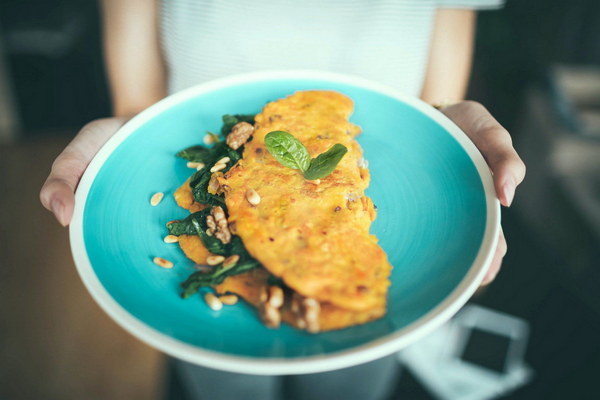Rice or Noodles Which is Better for Building Qi (Energy) in Traditional Chinese Medicine
In the realm of Traditional Chinese Medicine (TCM), the concept of Qi or vital energy plays a crucial role in maintaining health and well-being. Foods are often categorized based on their energetic properties, and it's believed that certain foods can help build or strengthen Qi within the body. When it comes to staple foods like rice and noodles, many people wonder: which one is better for boosting Qi? Let's explore this question in detail.
The Energetic Properties of Rice
Rice is a staple in many cultures and is often celebrated for its versatility and nutritional value. In TCM, rice is considered to have a neutral or slightly cooling energy. It is believed to be beneficial for individuals with deficient Qi, as it can help to replenish and strengthen their vital energy without causing excess heat or stagnation in the body.
According to TCM, rice is particularly good for building Qi in the following ways:
1. Spleen and Stomach Qi: Rice is thought to be particularly nourishing for the spleen and stomach, which are responsible for the transformation and transportation of nutrients in the body. A strong spleen and stomach are crucial for the production and distribution of Qi.
2. Digestive System: The mild nature of rice makes it easy to digest, which is beneficial for those with weak digestive systems or those who are recovering from illness. Easy digestion means that more of the rice's nutrients can be absorbed and used to build Qi.
3. Blood Building: Rice is also considered to have blood-building properties, which can be helpful for individuals with blood deficiencies or anemia, as adequate blood is essential for the production and circulation of Qi.
The Energetic Properties of Noodles

Noodles, on the other hand, are made from flour, which is typically derived from wheat. In TCM, wheat is considered to have a slightly warm energy. This warmth is thought to be beneficial for individuals with cold or weak Qi, as it can help to warm the body and improve circulation.
Here are some ways in which noodles are believed to build Qi:
1. Warming Qi: Noodles can help to warm the body and improve circulation, which is beneficial for those with cold hands and feet or poor circulation.
2. Stomach Qi: Similar to rice, noodles are also believed to be good for the spleen and stomach, although they may be slightly more stimulating to the digestive system than rice.
3. Nutritious and Sustaining: Noodles are often enriched with eggs or other nutrients, which can provide a sustained release of energy and help to build and maintain Qi.
Choosing Between Rice and Noodles
When it comes to choosing between rice and noodles to build Qi, the answer may depend on an individual's specific energetic constitution and health needs.
- If you have a deficiency of Qi, particularly in the spleen and stomach, or if you have a blood deficiency, rice may be the better choice due to its neutral or slightly cooling energy and blood-building properties.
- If you feel cold, have poor circulation, or experience digestive issues that could be improved by warmth, noodles might be more suitable for you, as their slightly warm energy can help to invigorate and support your Qi.
It's important to note that TCM is a complex system that takes into account many factors, including an individual's overall health, lifestyle, and environment. Therefore, it's best to consult with a qualified TCM practitioner who can provide personalized dietary advice based on a comprehensive assessment.
In conclusion, both rice and noodles have their own unique qualities that can contribute to building and maintaining Qi in the body. By understanding the energetic properties of these staple foods and considering your individual needs, you can make informed choices about your diet and its impact on your health and well-being.









